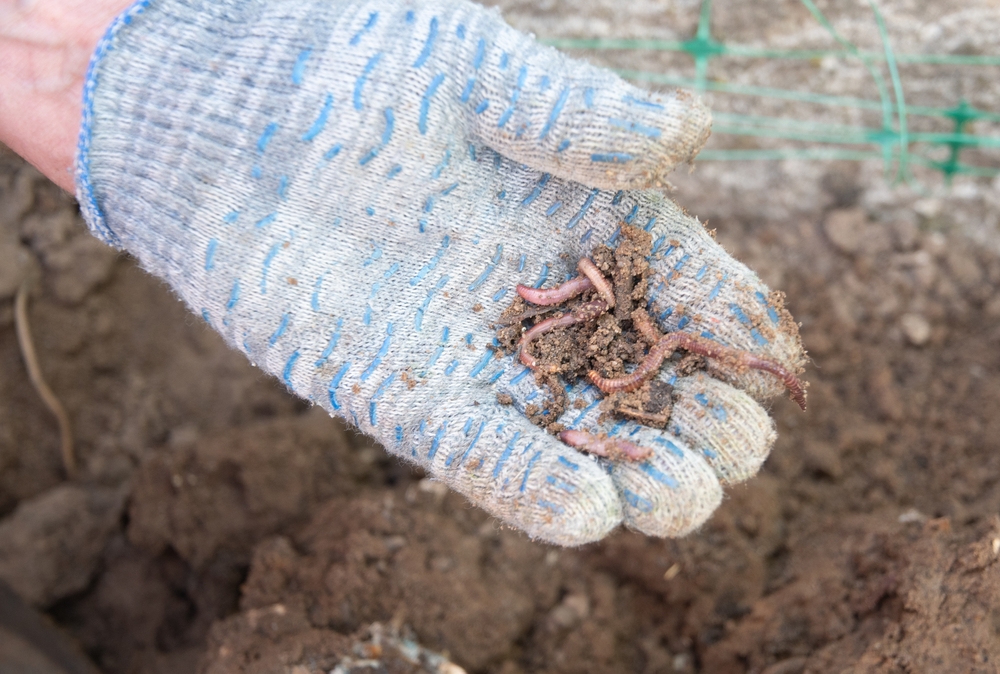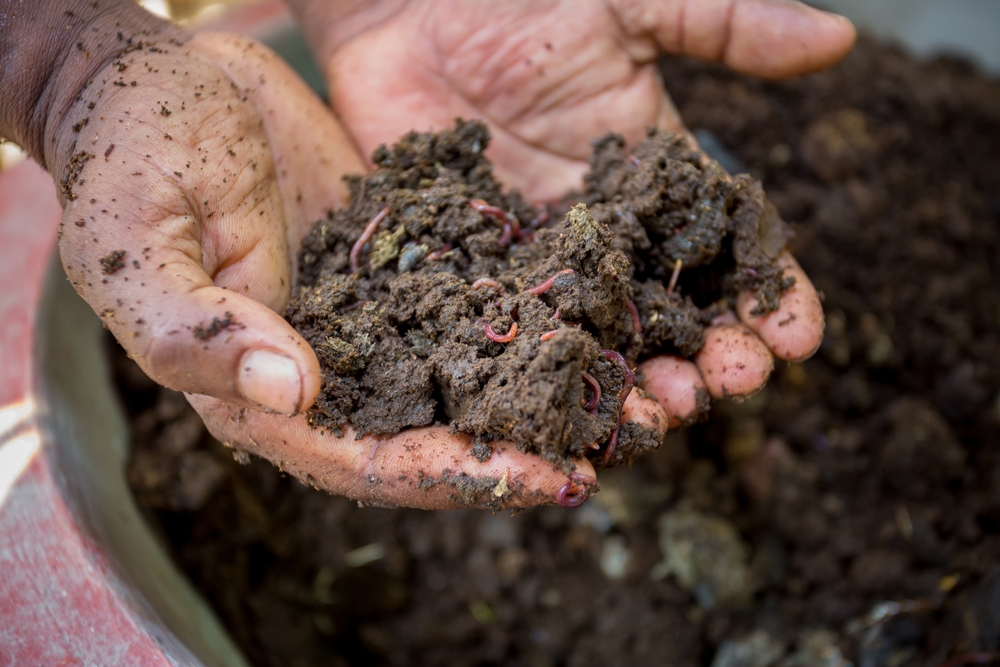
How Earthworms Improve Soil Health: 6 Key Benefits
Every October 21st, the world celebrates earthworms — tiny yet mighty creatures that are critically important to the planet.
Why are they so vital, you ask? Because of their instrumental role in maintaining healthy soil.
Let’s explore five ways earthworms contribute to soil health.
1. Earthworms improve soil structure
Earthworms are natural soil engineers. Their burrowing activities create tunnels in the soil that significantly improve its structure. As they move, earthworms loosen and aerate soil, making it easier for plant roots to grow. Aeration also promotes healthy gas exchange, allowing oxygen to reach plant roots and microorganisms.
In addition to improving aeration, tunneling helps in the formation of soil aggregates — a physical trait of healthy soil. Aggregates are clumps of soil particles that stick together; they improve soil stability and reduce compaction, making the soil more resistant to erosion and harsh weather conditions.
On some farms, MyLand scientists saw the return of earthworms after decades without them — a clear sign that soil health on the farm was improving. Their reappearance marked a positive shift in the farm’s ecosystem.
Does your farm need help?
Earthworms help the soil and farmers, but your operation may need more support. MyLand can help you harness your land’s native ecosystem to increase crop growth, yield, and ROI.
2. Earthworms aid in natural fertilization
Earthworms are natural recyclers, consuming organic matter like dead plant material and animal waste, then breaking it down and excreting it in the form of nutrient-rich worm castings. This all serves as natural fertilizer to healthy soil.
These castings, sometimes called vermicastings, are packed with nutrients like nitrogen, phosphorus, and potassium. Earthworm castings not only improve soil health but also support sustainable agricultural practices.

3. Earthworms boost water infiltration and retention
Earthworms play a crucial role in ensuring that soil can retain and most effectively utilize water. Rather than water running off the soil’s surface, the tunnels left behind by earthworms allow for better water infiltration. This action both reduces the risk of erosion and ensures plant roots have access to moisture, even during dry weather periods.
This improvement in water retention is particularly beneficial for farmers who rely on consistent soil moisture for crop production. By creating these makeshift irrigation systems, earthworms naturally help healthy soil manage water more efficiently and reduce the need for irrigation.
4. Earthworms promote microbial activity
Earthworms can enhance plant health by fostering microbial activities in the soil. As earthworms consume organic matter, they introduce beneficial microbes into the soil, which are essential for breaking down organic material, cycling nutrients, and enriching the soil’s biological activity.
These microorganisms create protective environments for vegetation and are instrumental in suppressing plant diseases. This symbiotic relationship between earthworms, microbes, and plants is fundamental to maintaining a healthy ecosystem and promoting vigorous plant growth.

5. Earthworms increase plant production
One of the most tangible benefits of earthworm activity is the boost it provides to nutrient availability. As earthworms break down organic matter, they release nitrogen and other nutrients that are locked away in plant residues and soil organic matter. These nutrients become available to plants, leading to healthier and more vigorous growth.
Increased plant production is not only beneficial for farmers and gardeners but also for the overall ecosystem. Healthier plants provide more food and habitat for other species, creating a more balanced and thriving environment.

6. Earthworms are indicators of soil health improvement
Earthworms can act as natural indicators of soil health. When earthworm populations are thriving, it’s a sign that the soil is rich in organic matter and has good structure, moisture, and aeration. Conversely, a lack of earthworms can indicate soil compaction, low organic content, or harmful chemical levels.
On farms using sustainable practices, the reappearance of earthworms often signals that soil restoration efforts are working. These changes can help farmers understand when their land is recovering and guide them in making adjustments to improve soil conditions further. This makes earthworms not just contributors to soil health but also valuable indicators of its overall well-being.
This ability to signal shifts in soil health makes earthworms a valuable ally in regenerative farming and sustainable agriculture, where maintaining soil vitality is essential.
Earthworms may be small, but their contributions to soil health and ecosystem function are immense. From improving soil structure and fertility to enhancing water retention and microbial activity, these creatures are a vital part of the earth’s natural systems.
Why is World Earthworm Day in October?
The first World Earthworm Day was celebrated on October 21, 2016 — a date chosen by the Earthworm Society of Britain to honor Charles Darwin, an advocate of the power of earthworms and their impact on soil health. In his final book, The Formation of Vegetable Mould, Through the Action of Worms (1881), Darwin said, “It may be doubted if there are any other animals which have played such an important part in the history of the world as these lowly organized creatures.”
As we celebrate World Earthworm Day this October 21st, let’s remember the important role they play in supporting not just plants, but the entire web of life that depends on healthy soil.
The next time you see an earthworm, take a moment to appreciate the hard work happening beneath your feet!